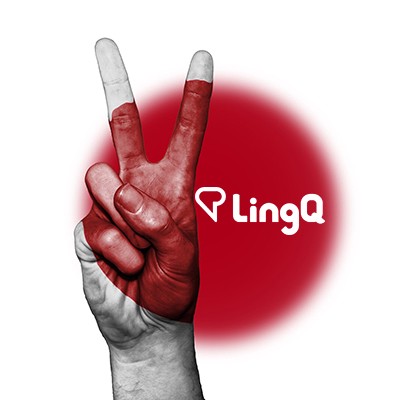
Slang might be something you don?t think of much in your native language. It?s something you just pick up by being around your peer group, watching TV or surfing the web. However, you might notice it more when you begin to learn a foreign language. Suddenly, there are all these words you didn?t know that don?t really appear in the textbook or the dictionary. What do they mean, and where did they come from?!
Slang is an important part of any language. It is, by definition, very casual speech or text. Japanese has a rich reservoir of slang that is often thrown around in conversations, so if you?re studying the language, you should get to know a few.
10 Japanese Slang Terms
1. ???? (Hey!)
????? (konchiwa ? ) is just a shortened form of ????? (konnichiwa ? ), which means ?Hello? or ?Good day.? You would use this greeting with friends, family and small kids, not so much with your ?? (elders) or your boss. ????? is the standard and appropriate greeting when you?re not sure yet about how the nature of your relationship.

2. ???? (good-looking guy)
????(Ikemen) is basically a good-looking guy, handsome dude or hunk. The first part of the word, ?ike,? is derived from ???? (Iketeru), which means ?cool, stylish or turn-on?.
You might see it used in simple contexts like ???????? (Ikemen desu ne!) Commonly applied to many Japanese idols and celebrities, ???? is a popular word you should know.
Notice how ???? is typed in katakana. This is because katakana is often used for emphasis and for words that don?t quite fit into the original language, making it quite apt to use for slang words!
3. ??? (gross)
??? (kimoi) is another abbreviation, short for ????? (kimochi ga warui). It literally means that you have a bad feeling, but it translates into ?gross,? ?disgusting? or ?offensive.?
If you?ve received unwanted text messages from someone, then you might say the situation is???.
???????????????????????????????? His texting me of ?You?re cute. Do you want to be my girlfriend?? was really disgusting.

4. KY (Just doesn?t get it)
This isn?t one that can be easily guessed even if you know Japanese.
A form of text-able slang, KY is an abbreviation for?????? (kuuki yomenai), which literally translates into ?cannot read the air.? It is a phrase applied to someone who misses the implied meaning. In other words, someone who can?t read between the lines.
Spoken, a friend might jocularly say ????????,? but texting, he might just write KY.
Watch for this abbreviation the next time you?re on a Japanese forum or other casual site.
5. ?? (really, seriously)
An abbreviation of ???(majime), ?? (maji) means ?seriously,? ?for real? or ?really.? It is sometimes used intentionally to oppose the idea of ?playfully? or ?capriciously.?
It?s meaning and usage is similar to how ?really? is used.
??? Really?
?????? Really!
You?ll also see ?? used in the middle of sentences, in context.
?????????5???????????? He drank up five bowls of soup, for real!
????????? Are you really okay?
You?ll hear these frequently in Japanese sources, such as movies, texts and daily conversations, so this is a handy piece of slang to commit to memory!

6. ??? (Person who is satisfied with real life)
Again, here is slang that is a mash-up of two words, ??? (rearu) and ?? (juujitsu). ??? means ?real? and?? means ?fulfilled? or ?satisfied,? and put together, the word denotes someone who is satisfied with their real life, as opposed to their online life.
This is an interesting word, since the fact that it even exists just shows how much we?ve come to depend on our online presence.
???????????Are you satisfied with your real life?
7. ???? (very, extremely)
???? (meccha) is a casual word that means ?very? or ?extremely? and is used for emphasis. It has a similar meaning to ??? (very) but has more of a cool and casual tone about it.
The word is derived from the Kansai dialect, which is a dialect used in the area around Osaka, Kobe and Kyoto, but people from all over Japan are likely to understand it and even use it.
I?ve seen ???? used frequently on social media forums, often by Kansaijin (people from the Kansai area) to indicate their locality.
You?ll hear word often in popular speech, so it?s a good word to know.

8. ??? or??? (I Lol?d)
Translated into English slang, ???(warota) or???(warosu) means ?I lol?d? for ?I laughed out loud.?
It?s a distortion of the word ??(warau), which means ?to laugh.? Warota or warosu sounds like you attempted to say ?warau? through your laughing, so the word got muddled. This word is also frequently written in katakana, but you may also see it in hiragana.
9. ??? (annoying, what a pain)
??? (uzai) is short for ???? (urusai), which means ?annoying? or ?noisy.? You?ll hear this slang used in short statements frequently, when someone gets annoyed and just remarks, ??????? (?annoying? or ?what a pain?).
As an adjective this word can be inflected, so you?ll see the negative form ????? (uzakunai) used.
??????????? Isn?t Terry a pain?
This word is great for capturing your feelings of frustration when no other words will do.

10. ??? (uncool, out of fashion)
Given how fashion-conscious Japanese culture can be, you need a word to describe those who make the fashion no-nos. ??? (dasai) is a derogative, although sometimes endearingly or humorously used, for things, people or places that are just uncool-looking.
It has less to do with how handsome or pretty a person is than with their grooming and clothes, so you can have a ??????? (dasai ikemen), or handsome uncool guy.
The opposite of ??? is ???? (oshare), which is not a slang term but casual word that means ?smartly dressed? or ?fashionable.?
I hope you enjoyed a sampling of the rich repertoire of Japanese slang. A lot of slang words are packed full of emotion and emphasis, so they will be sure to add colour to your speech as you them. As always, consider the context and the nuance of the word you are using, especially the more judge-y of the slang terms!
Originally posted on the LingQ blog.


